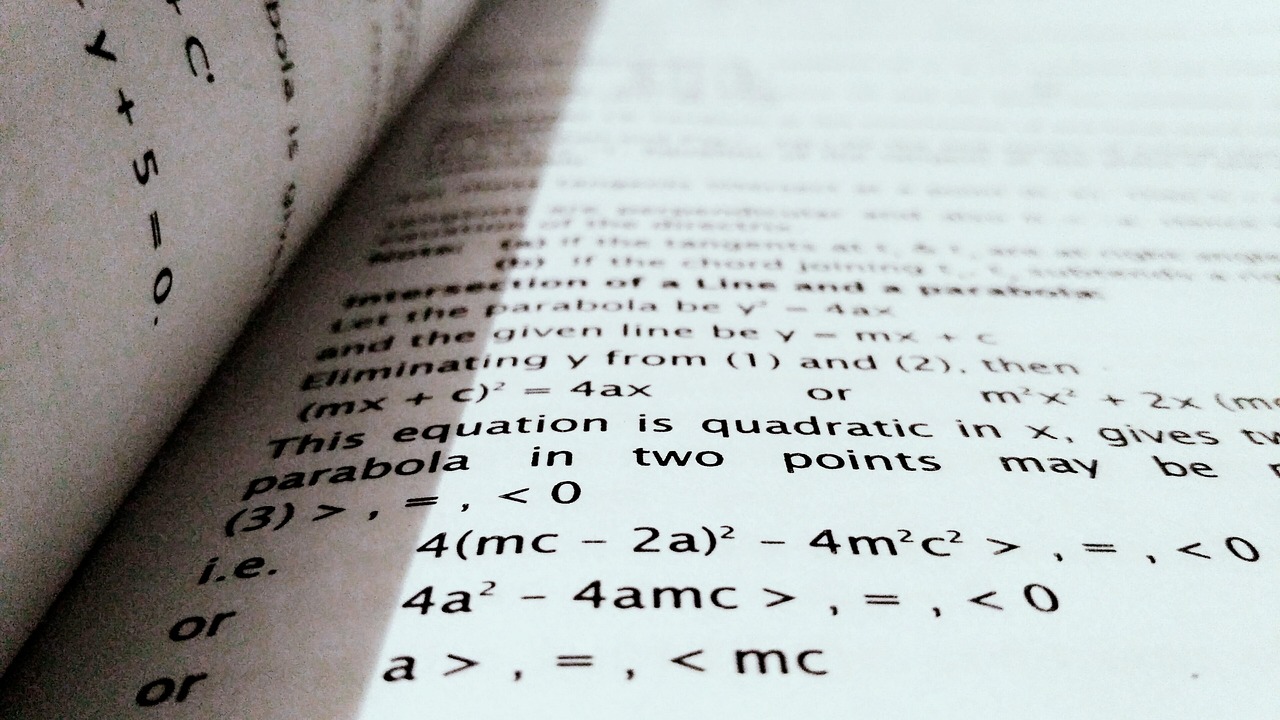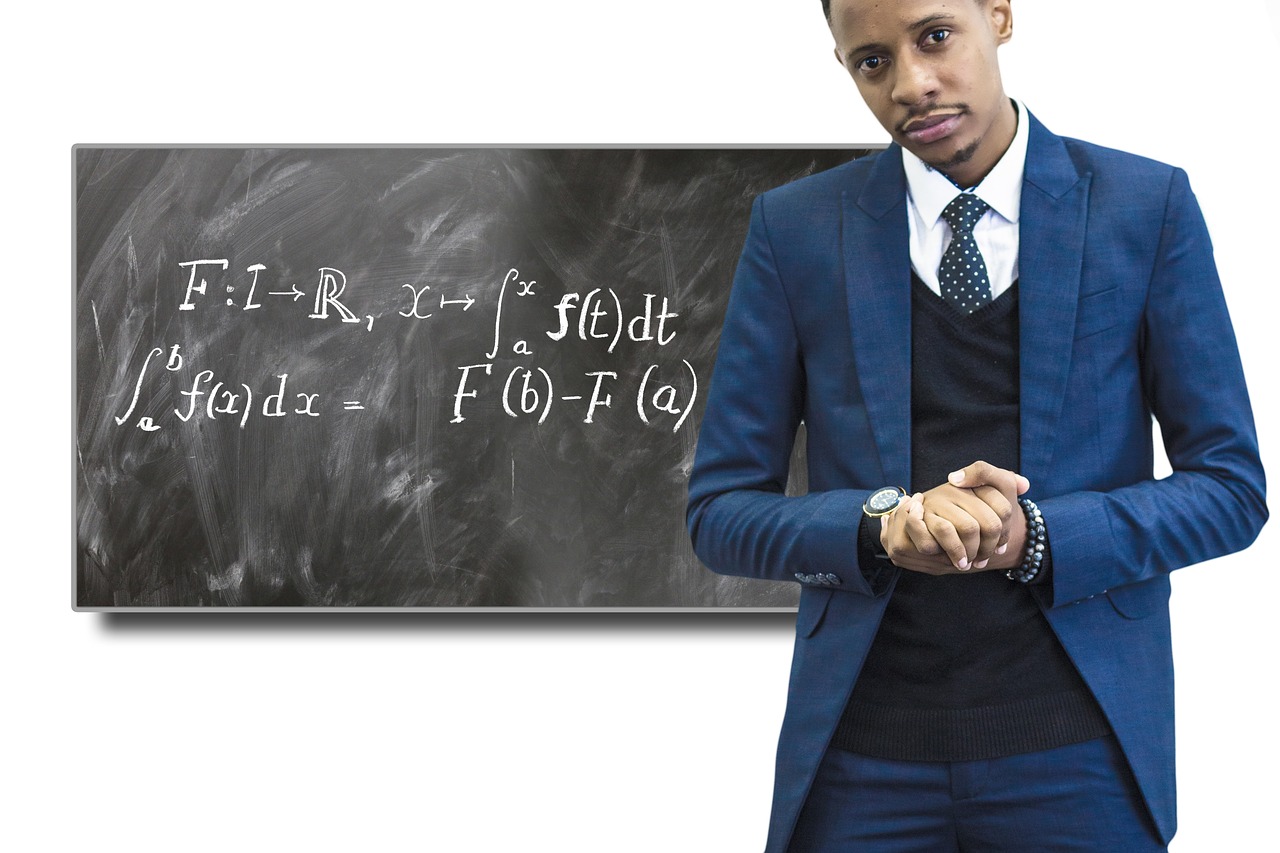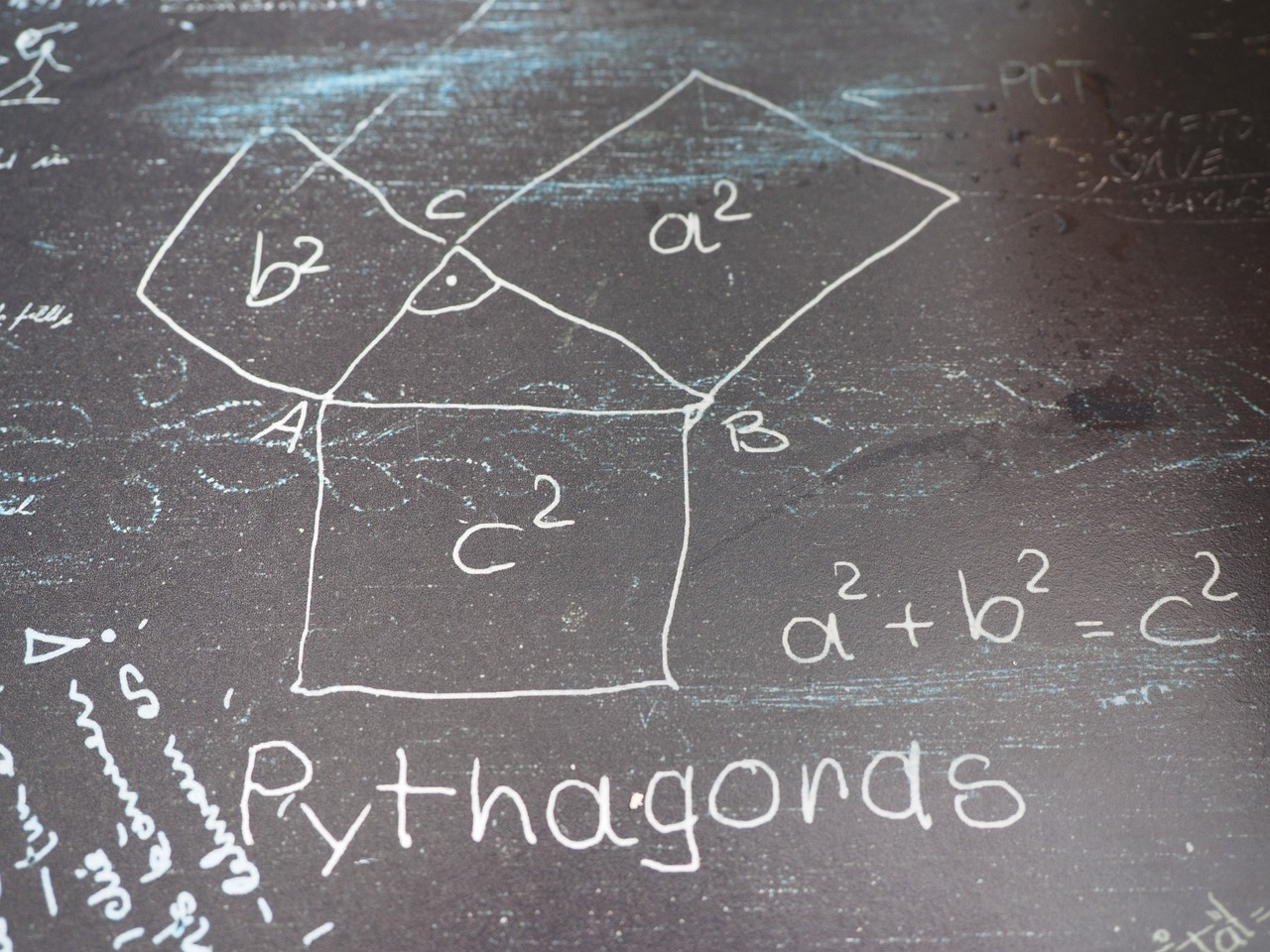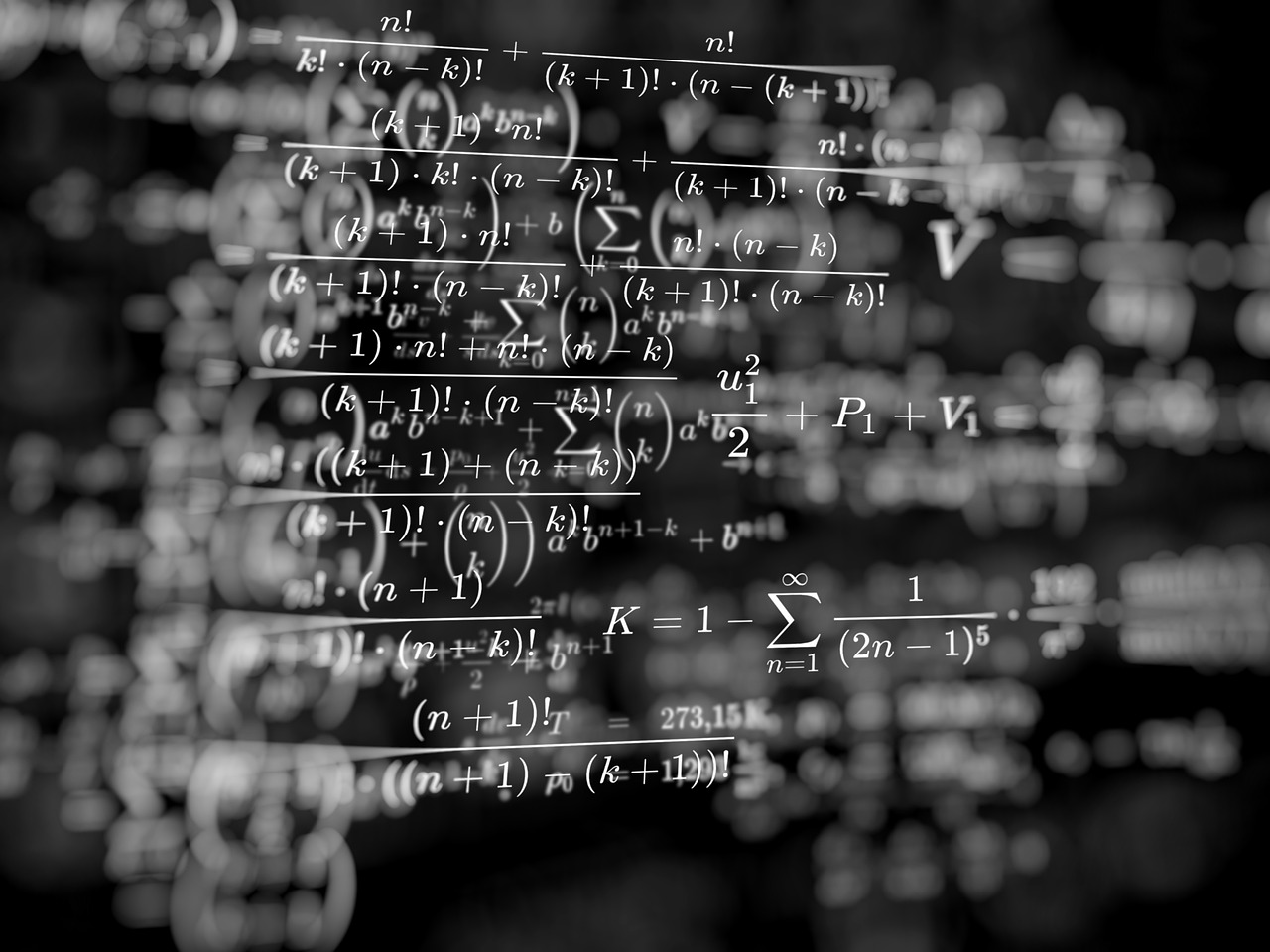Philosophy of Mathematics - Is Math a Science?
When we think about mathematics, it often conjures images of numbers, equations, and abstract concepts that seem to float in a realm separate from the physical world. But have you ever stopped to wonder whether mathematics is merely a tool we use, or if it stands as a science in its own right? This question is not just a trivial pursuit; it delves into the very essence of what mathematics represents and how it interacts with the universe around us. In this exploration, we will peel back the layers of mathematical philosophy, examining its foundations, methodologies, and the profound implications of classifying it as a science.
At its core, mathematics is a language—a universal means of describing patterns, relationships, and structures that exist in both the natural and abstract worlds. Yet, unlike the natural sciences, which rely heavily on empirical observation and experimentation, mathematics often operates in a realm of pure logic and deductive reasoning. This distinction raises intriguing questions: Can we truly classify mathematics as a science? Or is it simply a framework that assists other scientific disciplines in articulating their theories and findings?
To grapple with these questions, we must first understand the nature of mathematical truth. Is it an objective reality that exists independently of human thought, or is it a subjective construct shaped by our perceptions and experiences? This debate is not merely academic; it affects how we view mathematics in relation to other fields of study. As we journey through this article, we will explore the various dimensions of mathematics, its relationship with science, and the philosophical perspectives that shape our understanding.
As we embark on this intellectual adventure, consider the implications of viewing mathematics as a science. If we accept this classification, we open ourselves to a richer understanding of mathematical truths and their applications in the real world. We invite you to join us as we dissect the intricate tapestry of mathematics and its philosophical underpinnings, ultimately aiming to answer the question: Is math a science?
One of the most captivating aspects of mathematics is its relationship with truth. Unlike the natural sciences, where truths are often contingent upon experimental validation, mathematical truths seem to stand apart, immutable and eternal. But what does this mean for our understanding of mathematics as a discipline? Are these truths objective realities, or are they subjective constructs shaped by human thought? This section delves into the very essence of mathematical truth, examining its implications for our perception of mathematics and its classification as a science.
When we compare mathematics with other scientific disciplines, we uncover fascinating similarities and differences. Mathematics serves as a foundational language for the natural and social sciences, providing the tools necessary for modeling complex phenomena. However, while natural sciences rely on empirical data and observation, mathematics often relies on pure logic and deduction. This fundamental distinction invites us to explore the methodologies and epistemologies that define each field, and how they contribute to our understanding of the world.
Deductive reasoning is the bedrock of mathematical proof and the source of its certainty. In mathematics, we start with axioms—self-evident truths—and build upon them to establish theorems through rigorous logical reasoning. This process of deduction is what sets mathematics apart from empirical sciences, where observations can lead to conclusions that are often provisional and subject to change. In the world of mathematics, once a theorem is proven, it is considered an absolute truth, a stark contrast to the uncertainties that often permeate scientific inquiry.
To illustrate the power of deductive reasoning, let’s consider some classic examples of mathematical proofs:
- The Pythagorean Theorem: This theorem establishes a fundamental relationship between the sides of a right triangle, proving that a² + b² c².
- Euclid's Proof of the Infinitude of Primes: This proof demonstrates that there are infinitely many prime numbers, a cornerstone of number theory.
- Fermat's Last Theorem: After centuries, Andrew Wiles proved this theorem, showcasing the depth of mathematical inquiry and the power of deductive reasoning.
While deductive reasoning is a powerful tool, it is not without its limitations. There are instances where intuition and empirical evidence challenge established mathematical truths. For example, concepts like non-Euclidean geometry emerged from questioning the very axioms that had long been accepted, demonstrating that even in mathematics, our understanding can evolve.
Mathematics transcends cultural and linguistic barriers, functioning as a universal language that describes complex phenomena across various scientific fields. From physics to economics, mathematics provides a common framework for expressing ideas and solving problems. This ability to articulate intricate concepts in a concise manner underscores the importance of mathematics in interdisciplinary research, allowing scientists and scholars to collaborate effectively.
Axioms and theorems form the backbone of mathematical reasoning, shaping the discipline and influencing its classification as a science. Axioms are the foundational statements accepted without proof, while theorems are propositions that have been proven based on these axioms. Together, they create a structured framework that guides mathematical inquiry.
Axiomatic systems are critical in establishing the validity of mathematical reasoning. By selecting different sets of axioms, mathematicians can explore various mathematical landscapes, leading to the development of distinct branches such as geometry, algebra, and calculus. This flexibility highlights the dynamic nature of mathematics and its capacity for growth and adaptation.
Major mathematical theorems have profoundly influenced scientific developments, underscoring the interconnectedness of mathematics and scientific inquiry. For instance, the calculus of variations has been pivotal in physics, while probability theory has reshaped our understanding of statistics and social sciences. This synergy illustrates that mathematics is not merely a tool but a vital component of scientific exploration.
As we delve deeper into the philosophy of mathematics, we encounter various perspectives that shape our understanding of this discipline. Platonism, nominalism, and constructivism offer contrasting views on the existence of mathematical entities and the nature of mathematical knowledge.
Platonism posits that mathematical entities exist independently of human thought, suggesting that mathematical truths are objective realities waiting to be discovered. This perspective implies that mathematics is a science that uncovers universal truths about the universe.
In contrast, nominalism and constructivism challenge the existence of abstract mathematical entities. Nominalists argue that mathematics is merely a linguistic construct, while constructivists assert that mathematical knowledge is built through human activity and experience. These views raise important questions about the nature of mathematical truths and their implications for understanding mathematics as a science.
- Is mathematics a science? Yes, many consider mathematics a science due to its rigorous methodologies and foundational role in understanding the universe.
- What is the difference between mathematics and other sciences? Mathematics relies on deductive reasoning and abstract concepts, while other sciences depend on empirical data and observation.
- Can mathematical truths change? While established theorems are considered absolute, new discoveries can challenge existing mathematical concepts, leading to a deeper understanding.

The Nature of Mathematical Truth
When we dive into the nature of mathematical truth, we find ourselves at a crossroads of philosophy, logic, and intuition. Is mathematical truth something that exists independently of us, or is it merely a construct of human thought? This question has puzzled mathematicians and philosophers alike for centuries. To understand this better, let's consider the two dominant perspectives: objectivism and subjectivism.
Objectivists argue that mathematical truths are universal and exist outside of human perception. For instance, the statement "2 + 2 4" holds true regardless of whether anyone is around to verify it. This perspective aligns with the philosophy of Platonism, which posits that mathematical entities, like numbers and shapes, exist in a realm of their own, waiting to be discovered. On the other hand, subjectivists contend that mathematical truths are human inventions, shaped by our experiences and cognitive frameworks. This view suggests that mathematics is akin to a language we created to describe patterns and relationships in the world around us.
To further complicate matters, we must consider the implications of these views on our understanding of mathematics. If mathematical truths are objective, then they possess an inherent certainty that can be relied upon in various applications—from physics to engineering. However, if they are subjective, then the validity of mathematical statements could vary based on cultural or contextual factors. This leads us to a crucial question: How do we reconcile these differing viewpoints?
One way to bridge this gap is by examining the role of axioms and theorems in mathematics. Axioms are foundational truths that we accept without proof, serving as the building blocks for further reasoning. Theorems, on the other hand, are propositions that can be proven based on these axioms. This structured approach provides a semblance of objectivity, as it allows mathematicians to derive new truths from accepted principles. However, the choice of axioms can be subjective, leading to different mathematical systems, such as Euclidean and non-Euclidean geometries. This raises another intriguing point: Are we merely playing with symbols, or are we uncovering deeper truths about the universe?
Moreover, the debate surrounding mathematical truth extends beyond pure mathematics. In applied fields, such as statistics and data science, the interpretation of mathematical models can be influenced by real-world contexts. This interaction between abstract mathematical concepts and empirical evidence highlights the dynamic nature of mathematical truth. It suggests that while some aspects of mathematics may be objective, others are inherently tied to human experience and interpretation.
In conclusion, the nature of mathematical truth is a complex interplay between objectivity and subjectivity. Whether we view it as an independent reality or a human construct, one thing is clear: mathematics serves as a powerful tool for understanding the world. As we continue to explore this fascinating discipline, we must remain open to the evolving nature of mathematical truths and the implications they hold for both science and philosophy.

Mathematics vs. Other Sciences
When we think about mathematics and its relationship with other sciences, it’s essential to recognize that while they share some common ground, they also diverge significantly in methodology and focus. Mathematics often serves as the backbone of scientific inquiry, providing the tools and language necessary to formulate theories and analyze data. But what really sets mathematics apart from the natural and social sciences? Let’s dive into this intriguing comparison.
At its core, mathematics is a discipline that deals with abstract concepts and relationships. It seeks to establish truths through rigorous proofs and logical reasoning. In contrast, natural sciences, such as physics and biology, rely heavily on empirical observations and experiments to validate hypotheses. This fundamental difference raises questions about the nature of truth in both realms. Is the truth of a mathematical theorem as absolute as the laws of physics, which can be tested and observed in the real world?
While both mathematics and the sciences aim to uncover truths, their approaches differ significantly:
- Methodology: Mathematics employs deductive reasoning, where conclusions are drawn from established axioms and previously proven theorems. In contrast, natural sciences often utilize inductive reasoning, building general principles from specific observations.
- Epistemology: The way knowledge is acquired in mathematics is through logical deduction, while in the sciences, knowledge is built through experimentation and observation.
- Types of Truths: Mathematics seeks universal truths that are timeless and unchanging, whereas scientific truths are often provisional, subject to change with new discoveries.
This distinction leads us to consider how mathematics interacts with the social sciences. Here, the relationship becomes even more nuanced. Social sciences, like psychology and sociology, often incorporate mathematical models to analyze data and predict behaviors. However, the inherent complexity of human behavior makes it challenging to apply strict mathematical reasoning. For instance, while we can model economic trends mathematically, the unpredictable nature of human decisions means that these models can only approximate reality.
To illustrate these differences further, let’s look at a simple comparison table:
| Aspect | Mathematics | Natural Sciences | Social Sciences |
|---|---|---|---|
| Methodology | Deductive Reasoning | Inductive Reasoning | Mixed Methods |
| Truth | Absolute and Universal | Provisional and Contextual | Contextual and Variable |
| Focus | Abstract Concepts | Physical Phenomena | Human Behavior |
In conclusion, while mathematics and the sciences intersect in various ways, they each maintain unique characteristics that define their respective inquiries. Mathematics provides the structure and language that allow scientific disciplines to articulate their findings, yet it remains distinct in its pursuit of absolute truths. Understanding these differences not only enhances our appreciation for mathematics but also deepens our comprehension of the scientific process as a whole.

Deductive Reasoning in Mathematics
Deductive reasoning is the cornerstone of mathematical thinking, serving as the rigorous framework through which mathematical truths are established. Unlike other disciplines that often rely on observation and experimentation, mathematics operates on a foundation of logical inference. This means that once certain premises or axioms are accepted, mathematicians can derive conclusions that are undeniably true, assuming the reasoning process is valid. Think of it like a well-constructed house: if the foundation is solid, the structure built upon it will stand strong against the tests of time.
In mathematics, deductive reasoning begins with general principles or axioms, which are accepted as true without proof. From these axioms, mathematicians use logical steps to derive specific theorems. For instance, consider the axioms of Euclidean geometry. From the axiom that through any two points, there exists a straight line, one can deduce various properties of geometric shapes. This process not only ensures the validity of mathematical statements but also provides a systematic approach to problem-solving.
To illustrate the power of deductive reasoning, let’s take a look at a simple example:
| Axiom | Theorem | Conclusion |
|---|---|---|
| All right angles are equal. | If two angles are right angles, then they are equal. | Angle A Angle B if both are right angles. |
This table illustrates how a simple axiom can lead to a theorem that further clarifies our understanding of angles. The beauty of deductive reasoning lies in its ability to create a chain of logical conclusions, each one building upon the last, creating a vast network of knowledge.
However, it's essential to recognize that while deductive reasoning provides certainty within mathematics, it does not always translate seamlessly into the empirical world. There are instances where intuition and empirical evidence challenge established mathematical truths. For example, in certain advanced fields like topology or non-Euclidean geometry, what seems intuitively obvious may not hold true under strict deductive scrutiny. This highlights a fascinating paradox: while mathematics strives for absolute certainty through deduction, the real world often presents complexities that challenge these conclusions.
In conclusion, deductive reasoning in mathematics is not merely a method; it is a philosophy that emphasizes the importance of logical structure and clarity. It allows mathematicians to explore the depths of abstract concepts and apply them to solve real-world problems. The interplay between deduction and empirical observation is what makes mathematics both a science and an art, inviting us to ponder: how do we balance the certainty of mathematical proof with the uncertainties of the world around us?

Examples of Mathematical Proofs
Mathematics is often seen as a realm of certainty, where truths can be established through rigorous proofs. One of the most famous examples is the Pythagorean Theorem, which states that in a right triangle, the square of the length of the hypotenuse is equal to the sum of the squares of the lengths of the other two sides. This theorem can be proven using various methods, including geometric proofs and algebraic manipulations, demonstrating the versatility and robustness of mathematical reasoning.
Another compelling example is the proof of Euclid's Elements, particularly the proof of the infinitude of prime numbers. Euclid's argument is both elegant and simple: he asserts that if we assume there is a finite number of primes, we can multiply them together and add one, resulting in a new number that cannot be divisible by any of the existing primes, thus contradicting our original assumption. This proof not only showcases the power of deductive reasoning but also highlights how mathematics can lead to surprising conclusions.
Additionally, consider the famous Fermat's Last Theorem, which states that there are no three positive integers \(a\), \(b\), and \(c\) that satisfy the equation \(a^n + b^n c^n\) for any integer value of \(n\) greater than two. This theorem remained unproven for over 350 years until Andrew Wiles finally provided a proof in the 1990s, employing sophisticated techniques from algebraic geometry and number theory. This example illustrates not only the depth of mathematical inquiry but also the collaborative nature of mathematical research, where ideas from various fields converge to solve longstanding problems.
To further appreciate the diversity of mathematical proofs, we can categorize them into several types:
- Direct Proofs: These involve straightforward logical deductions from axioms and previously established theorems.
- Indirect Proofs: Also known as proofs by contradiction, these assume the negation of what we want to prove and show that this leads to a contradiction.
- Constructive Proofs: These not only demonstrate the existence of a mathematical object but also provide a method for constructing it.
- Non-Constructive Proofs: These prove existence without providing a specific example or method of construction.
Each of these proof types serves a unique purpose and illustrates the rich tapestry of mathematical thought. The elegance of a proof often lies not just in its conclusion but in the journey taken to reach that conclusion. Whether through the simplicity of geometric reasoning or the complexity of modern algebra, mathematical proofs remain a cornerstone of the discipline, embodying the rigor and beauty that define mathematics.

Limitations of Deductive Reasoning
Deductive reasoning is often hailed as the gold standard in mathematics, a method that guarantees certainty and clarity. However, it’s essential to recognize that this approach has its limitations. While deductive reasoning allows us to derive conclusions from established axioms and previously proven theorems, it does not always account for the complexities of real-world applications. For instance, mathematical proofs can be based on assumptions that may not hold true in practical scenarios. This disconnect raises questions about the applicability of mathematical results outside the realm of pure theory.
One significant limitation of deductive reasoning lies in its reliance on axioms. Axioms are the foundational statements accepted without proof, and their validity is crucial for the conclusions drawn from them. However, if an axiom is flawed or misinterpreted, the entire structure of reasoning built upon it can collapse. This phenomenon is particularly evident in various mathematical systems where different axioms lead to different conclusions. For example, in non-Euclidean geometry, the parallel postulate is altered, resulting in entirely different geometric properties. This divergence illustrates how the choice of axioms can limit the universality of deductive reasoning.
Moreover, deductive reasoning often overlooks the role of intuition and empirical evidence. While mathematicians may derive a theorem through pure logic, real-world observations can contradict these conclusions. Take, for instance, the famous Four Color Theorem, which asserts that four colors are sufficient to color any map in such a way that no adjacent regions share the same color. Although proven deductively, the theorem's implications can sometimes lead to unexpected results in practical applications, particularly in complex maps where human intuition about adjacency may not align with mathematical logic.
Another limitation arises from the inherent complexity of certain mathematical concepts. As we delve deeper into fields like topology or abstract algebra, the abstractions can become so intricate that they challenge even the most seasoned mathematicians. In these cases, deductive reasoning alone may not suffice; intuition and creativity play crucial roles in understanding and applying these concepts. Thus, while deductive reasoning is a powerful tool, it is not an all-encompassing solution.
In conclusion, while deductive reasoning provides a structured and rigorous approach to mathematics, it has its limitations. The reliance on axioms, the potential disconnect with real-world applications, and the complexity of advanced mathematical concepts all contribute to a broader understanding of mathematics as a discipline. It is crucial for mathematicians and scientists alike to recognize these limitations and complement deductive reasoning with other methods, such as empirical observation and intuitive reasoning, to fully grasp the nuances of mathematical truths.
- What is deductive reasoning?
Deductive reasoning is a logical process in which a conclusion is drawn from a set of premises or axioms. It is often used in mathematics to establish the validity of theorems based on previously accepted truths.
- Why are axioms important in mathematics?
Axioms serve as the foundational building blocks of mathematical reasoning. They are accepted as true without proof and form the basis for deriving further conclusions.
- Can deductive reasoning lead to incorrect conclusions?
Yes, if the axioms or premises are flawed or misinterpreted, the conclusions drawn through deductive reasoning can also be incorrect.
- How does intuition play a role in mathematics?
Intuition helps mathematicians to understand complex concepts and can guide them in making conjectures or hypotheses that may not be immediately evident through deductive reasoning alone.

Mathematics as a Language
Mathematics is often referred to as a universal language, and for good reason. Just like spoken languages, mathematics has its own syntax, grammar, and vocabulary. It allows us to communicate complex ideas and phenomena succinctly and precisely. Imagine trying to describe the intricate patterns of a snowflake or the trajectory of a rocket without the mathematical language; it would be akin to trying to paint a masterpiece with just a few colors. The beauty of mathematics lies in its ability to transcend cultural and linguistic barriers, providing a common ground for scientists, engineers, and thinkers across the globe.
One of the most fascinating aspects of mathematics as a language is its ability to describe natural phenomena. For instance, equations like Newton's laws of motion or Einstein's theory of relativity use mathematical expressions to encapsulate the laws governing the universe. These equations are not merely abstract symbols; they represent real-world relationships and allow us to predict outcomes with remarkable accuracy. When scientists collaborate on international projects, mathematical formulas serve as the lingua franca, enabling them to share findings and insights without the confusion that might arise from language differences.
Furthermore, mathematics acts as a bridge between various scientific disciplines. For example, in physics, calculus is essential for understanding motion, while in biology, statistics is crucial for analyzing data from experiments. This interconnectedness illustrates how mathematics can unify different fields, allowing for interdisciplinary research and innovation. Just as a translator helps two people from different cultures communicate, mathematics facilitates understanding among diverse scientific communities.
However, it’s important to recognize that while mathematics is a powerful tool for communication, it can also be a source of confusion. The abstract nature of mathematical concepts can sometimes alienate those who are not familiar with its intricacies. To mitigate this, educators are increasingly focusing on teaching mathematics in a way that emphasizes its relevance and application in everyday life. This approach not only demystifies the subject but also highlights its role as a practical language that can describe everything from simple transactions to complex scientific theories.
In conclusion, viewing mathematics as a language enriches our understanding of its significance in both academic and real-world contexts. It is not merely a collection of numbers and symbols; it is a dynamic tool that enables us to explore, describe, and understand the universe. As we continue to uncover the mysteries of the world around us, mathematics remains an indispensable ally, constantly evolving and adapting to meet our needs.
- Why is mathematics considered a universal language?
Mathematics is considered a universal language because it uses symbols and structures that are consistent across cultures, allowing people from different backgrounds to communicate complex ideas effectively.
- How does mathematics relate to other sciences?
Mathematics provides the foundational tools and frameworks for other sciences, enabling researchers to model, analyze, and interpret data from various fields such as physics, biology, and economics.
- Can anyone learn mathematics as a language?
Yes! With the right teaching methods and resources, anyone can learn mathematics. Emphasizing its practical applications can help demystify the subject and make it more accessible.

The Role of Axioms and Theorems
The world of mathematics is built upon a solid foundation of axioms and theorems. These fundamental components serve as the bedrock upon which all mathematical reasoning and exploration are constructed. Axioms are the basic assumptions or self-evident truths that we accept without proof, while theorems are propositions that have been proven based on these axioms. This relationship between axioms and theorems is crucial, as it not only shapes the discipline of mathematics but also influences its classification as a science.
To better understand this relationship, let’s consider a simple analogy: think of axioms as the ingredients in a recipe. Without the right ingredients, you can't create the dish you desire. Similarly, axioms provide the necessary building blocks for constructing mathematical truths. For example, in Euclidean geometry, one of the axioms states that through any two points, there exists exactly one straight line. This axiom leads to the development of various theorems, such as the Pythagorean theorem, which has profound implications in both mathematics and real-world applications.
Moreover, the choice of axioms can significantly alter the landscape of mathematics. Different systems of axioms can lead to entirely different mathematical structures. For instance, in non-Euclidean geometry, the parallel postulate is replaced, resulting in a new understanding of space that has implications in fields like physics and cosmology. This variability highlights the importance of axioms in defining the scope and nature of mathematical inquiry.
As we delve deeper into the role of theorems, we find that they are not merely abstract concepts; they have real-world applications that bridge mathematics and science. Theorems like Fermat's Last Theorem and Gödel's Incompleteness Theorems have not only advanced mathematical thought but have also influenced various scientific domains, including computer science and logic. The interconnectedness of these theorems with scientific inquiry underscores the vital role that mathematics plays in enhancing our understanding of the universe.
In summary, the interplay between axioms and theorems is fundamental to mathematics. Axioms provide the necessary groundwork, while theorems build upon this foundation to develop further knowledge. This relationship not only enhances our understanding of mathematical concepts but also illustrates how mathematics functions as a science, contributing to various fields and enriching our comprehension of the world around us.
- What are axioms in mathematics?
Axioms are basic assumptions or self-evident truths that serve as the foundation for mathematical reasoning. - How do theorems relate to axioms?
Theorems are propositions that have been proven based on the axioms accepted in a particular mathematical system. - Can different axioms lead to different mathematical outcomes?
Yes, changing the axioms can lead to entirely different mathematical structures and theorems. - Why are axioms important in mathematics?
Axioms are crucial because they provide the foundational truths upon which all mathematical reasoning is built.

Understanding Axiomatic Systems
When we talk about axiomatic systems, we're diving into the very foundation of mathematics. An axiomatic system is essentially a set of axioms or basic principles from which all other truths in that system can be derived. Think of it like building a house: the axioms are the sturdy foundation upon which the entire structure rests. If the foundation is solid, the house can stand tall and withstand the test of time. But what happens if the foundation is shaky? Well, the entire house could come crashing down, just like mathematical truths that rely on questionable axioms.
Axiomatic systems are not just arbitrary collections of statements; they are carefully curated to ensure consistency and completeness. For instance, one of the most famous axiomatic systems is Euclidean geometry, which is based on five fundamental axioms. These axioms, such as "through any two points, there is exactly one straight line," serve as the building blocks for proving various geometric theorems. However, if you were to alter one of these axioms, you could end up with an entirely different geometric system, like non-Euclidean geometry, where parallel lines can intersect!
In mathematics, the choice of axioms is crucial because it dictates the nature of the mathematical universe we are exploring. Axioms are often chosen for their intuitive appeal and their ability to produce a rich structure of theorems. For example, in set theory, the Axiom of Choice is a controversial axiom that states that given a collection of non-empty sets, it’s possible to select exactly one element from each set. This axiom leads to some fascinating, albeit counterintuitive, results. But here's the kicker: if you remove or replace the Axiom of Choice, many established results in set theory might no longer hold. It’s like tweaking a recipe—change one ingredient, and the final dish could taste entirely different!
Furthermore, axiomatic systems have implications that extend beyond pure mathematics. They influence how we approach problems in various scientific fields. For example, physicists often rely on mathematical axioms to formulate theories about the universe. The axioms of physics can be thought of as the guiding principles that help us understand everything from the motion of planets to the behavior of subatomic particles. Without a solid axiomatic foundation, our understanding of the natural world would be as unstable as a house of cards.
In summary, understanding axiomatic systems is crucial for anyone delving into the world of mathematics. They provide the structure and rigor necessary for establishing mathematical truths. Just like a well-built house, a robust axiomatic system can support a vast array of theorems and applications, making it a cornerstone of mathematical thought. So, the next time you ponder over a mathematical proof, remember that beneath the surface lies a carefully constructed framework of axioms that makes it all possible.
- What are axioms in mathematics? Axioms are fundamental statements or principles that are assumed to be true without proof, serving as the starting point for further reasoning and arguments.
- How do axiomatic systems affect mathematical truths? The choice of axioms can influence which mathematical truths are provable; changing the axioms can lead to different mathematical systems and results.
- Can axiomatic systems be inconsistent? Yes, if an axiomatic system contains contradictory axioms, it can lead to inconsistencies, making it impossible to derive reliable truths.
- Why are axioms important in science? Axioms provide a foundational framework for scientific theories, allowing for the development of consistent and testable hypotheses.

The Impact of Theorems on Science
The interplay between mathematics and science is a fascinating dance that has shaped our understanding of the universe. Theorems in mathematics serve as the backbone for numerous scientific principles, providing a framework that helps us make sense of complex phenomena. Think of theorems as the scaffolding of a grand building; without them, the structure would crumble under the weight of uncertainty. For instance, consider how the Pythagorean theorem is not just a mathematical abstraction but a fundamental principle that underlies various scientific applications, from architecture to physics.
One of the most significant impacts of mathematical theorems on science is their ability to establish **predictive models**. These models rely heavily on theorems to formulate hypotheses that can be tested through experimentation. A classic example is Newton's laws of motion, which are rooted in mathematical formulations that describe the relationship between force, mass, and acceleration. Without the mathematical theorems that underpin these laws, our understanding of motion would be rudimentary at best. This illustrates how mathematical rigor enhances the credibility and reliability of scientific claims.
Moreover, theorems facilitate the **communication of ideas** across different scientific disciplines. For example, the concept of calculus, developed through the works of Newton and Leibniz, has become a universal language that bridges gaps between physics, engineering, and economics. It allows scientists and engineers to model changes and predict outcomes in a variety of contexts. The beauty of mathematics lies in its ability to describe the same phenomenon in multiple ways, thereby fostering interdisciplinary collaboration and innovation.
To illustrate the profound influence of theorems on scientific progress, let’s take a look at a few key mathematical theorems and their scientific applications:
| Mathematical Theorem | Scientific Application |
|---|---|
| Pythagorean Theorem | Used in physics to calculate distances and in engineering for construction projects. |
| Calculus (Fundamental Theorem) | Essential for understanding changes in systems, used in physics, biology, and economics. |
| Fourier Transform | Applied in signal processing, image analysis, and solving differential equations in physics. |
However, the impact of theorems is not limited to their applications in established sciences. They also open new avenues for research and exploration. For instance, the development of chaos theory, which arose from the study of dynamical systems, has led to groundbreaking insights in meteorology, biology, and even economics. Theorems in this field help scientists understand how small changes in initial conditions can lead to vastly different outcomes, a concept that has profound implications for forecasting weather patterns and studying ecological systems.
In conclusion, theorems are not just dry mathematical statements; they are vital tools that drive scientific inquiry and innovation. They provide the structure and clarity needed to tackle complex questions about our world. As we continue to explore the mysteries of the universe, the relationship between mathematics and science will undoubtedly deepen, revealing new truths and expanding our horizons. So, the next time you marvel at a scientific breakthrough, remember the theorems that made it possible—they are the unsung heroes of scientific discovery.
- What is the significance of mathematical theorems in science? Mathematical theorems provide a foundational framework that helps scientists formulate hypotheses, create predictive models, and communicate complex ideas across disciplines.
- Can you give an example of a theorem that has impacted science? The Pythagorean theorem is a classic example, as it is used in various fields such as physics and engineering to calculate distances and design structures.
- How do theorems facilitate interdisciplinary research? Theorems often serve as universal languages that can be applied across different scientific fields, fostering collaboration and innovation.

Philosophical Perspectives on Mathematics
The philosophy of mathematics is a vast and intriguing field that invites us to ponder the very essence of mathematical concepts and their existence. At the heart of this discussion are several philosophical perspectives that offer unique insights into how we understand mathematics and its role in the universe. These perspectives range from the belief that mathematical entities exist independently of human thought to the idea that they are merely constructs of our minds. This debate is not just academic; it has profound implications for how we perceive mathematical truths and their applications in the real world.
One prominent perspective is Platonism, which posits that mathematical entities, such as numbers and geometric forms, exist in a non-physical realm, independent of human interaction. According to Platonists, when mathematicians prove theorems, they are not inventing new truths but rather discovering pre-existing ones. This view suggests that mathematical truths are objective and timeless, much like the laws of physics. Imagine stumbling upon a hidden treasure; the treasure was always there, waiting to be found. This analogy captures the essence of Platonism in mathematics.
In contrast, we have nominalism, which argues that mathematical entities do not exist independently but are merely names or labels we use to describe collections of objects or relationships. Nominalists contend that mathematics is a language developed by humans to communicate about quantities and shapes, rather than a reflection of an objective reality. This perspective can sometimes feel like a magician's trick—what appears to be real and solid is merely an illusion crafted by our minds. Nominalism challenges us to think critically about the nature of mathematical existence and whether our mathematical language genuinely captures reality.
Another fascinating viewpoint is constructivism, which takes the idea of human involvement in mathematics a step further. Constructivists believe that mathematical truths are not discovered but created through mental constructions. They emphasize the importance of constructive proofs, where the existence of a mathematical object is established by providing a method to construct it. In this sense, mathematics is akin to a recipe: the ingredients and steps must be clearly outlined for the dish to come together. This perspective brings a dynamic quality to mathematics, suggesting that it is an evolving discipline shaped by human creativity and experience.
Each of these philosophical perspectives offers a different lens through which we can view mathematics. They invite us to ask critical questions such as:
- Are mathematical truths universal and unchanging, or do they evolve with human thought?
- Do mathematical entities exist independently of us, or are they merely constructs of our imagination?
- How do these perspectives influence the way we teach and learn mathematics?
Ultimately, the philosophical perspectives on mathematics enrich our understanding of the discipline itself. They challenge us to consider not just the methods we use to solve mathematical problems but also the very nature of the truths we seek. As we navigate through these ideas, we find that mathematics is not just a collection of numbers and formulas; it is a profound exploration of existence, reality, and human understanding.
- What is the main difference between Platonism and nominalism?
Platonism asserts that mathematical entities exist independently of human thought, while nominalism argues that they are merely names or labels we use to describe concepts. - How does constructivism view mathematical truths?
Constructivism believes that mathematical truths are created through mental constructions and emphasizes the importance of providing methods to establish existence. - Can these philosophical perspectives coexist?
Yes, many mathematicians and philosophers adopt a combination of these perspectives, recognizing that each offers valuable insights into the nature of mathematics.

Platonism and Mathematical Realism
When we dive into the philosophical waters of mathematics, one of the most intriguing perspectives that emerges is Platonism. This viewpoint suggests that mathematical entities—like numbers, shapes, and functions—exist in a realm that is entirely independent of human thought. Imagine it like a grand library filled with infinite books of mathematical truths, each existing regardless of whether anyone has ever opened them. This notion of mathematical realism posits that these entities are not merely constructs of the human mind but instead have an existence that can be discovered, much like explorers uncovering new lands.
Platonists argue that mathematical truths are objective and eternal. For instance, the statement "2 + 2 4" is not just a human invention; it holds true universally, regardless of context or interpretation. This leads to a fascinating question: if mathematical truths are out there waiting to be discovered, what does that say about our understanding of reality? Are we merely uncovering a pre-existing order, or are we creating a framework to make sense of the chaos around us?
One of the strengths of Platonism is its ability to provide a solid foundation for mathematical proofs. When mathematicians prove a theorem, they are not just playing with symbols; they are revealing truths that exist in this abstract realm. However, this raises challenges, especially when considering how we access these truths. Is it through intuition, rigorous deduction, or perhaps a combination of both? The debate continues, with some arguing for a more empirical approach while others cling tightly to the idea of an objective mathematical reality.
To further illustrate the implications of Platonism, consider the following table that outlines key characteristics of Platonism in mathematics:
| Characteristic | Description |
|---|---|
| Existence | Mathematical entities exist independently of human thought. |
| Objectivity | Mathematical truths are objective and universal. |
| Discovery | Mathematics is about discovering truths rather than inventing them. |
| Rigor | Mathematical proofs reveal these pre-existing truths. |
However, the Platonist perspective is not without its critics. Some philosophers challenge the existence of abstract mathematical entities, arguing that they are simply useful fictions. This leads to alternative views such as nominalism, which denies the existence of abstract objects, and constructivism, which asserts that mathematical knowledge is constructed rather than discovered. These perspectives open up a rich dialogue about the nature of mathematics and its role in our understanding of the universe.
Ultimately, the Platonist view of mathematical realism invites us to ponder profound questions about existence, knowledge, and the nature of truth. As we navigate the intricate landscape of mathematics, we must consider whether we are uncovering eternal truths or constructing a useful framework to interpret our experiences. This philosophical inquiry not only deepens our understanding of mathematics but also enriches our grasp of the world around us.
- What is Platonism in mathematics? Platonism is the philosophical view that mathematical entities exist independently of human thought and are discovered rather than invented.
- How does Platonism differ from nominalism? Nominalism denies the existence of abstract mathematical entities, viewing them as mere names or labels, while Platonism asserts their independent existence.
- Can mathematical truths change? According to Platonism, mathematical truths are eternal and unchanging, regardless of human interpretation.
- What role does intuition play in mathematical discovery? While Platonists emphasize objective truths, intuition can guide mathematicians in their exploration of these truths.

Nominalism and Constructivism
When we dive into the intriguing world of nominalism and constructivism, we're essentially peeling back the layers of how we view mathematical concepts and entities. Both of these philosophical perspectives challenge the traditional notion that mathematical objects exist independently of human thought. Instead, they offer compelling arguments that reshape our understanding of mathematical knowledge.
Starting with nominalism, this viewpoint asserts that abstract mathematical entities, like numbers and shapes, do not exist in any real sense. They are merely names or labels that we use to describe collections of objects or concepts. For nominalists, mathematics is akin to a language—a system of symbols and rules that we create to communicate ideas. This perspective raises some fascinating questions: If mathematical entities are just names, what does that mean for mathematical truths? Are they merely conventions we’ve agreed upon?
On the other hand, constructivism takes a slightly different approach. Constructivists argue that mathematical knowledge is not discovered but rather constructed by humans. They emphasize the importance of constructive proofs—proofs that not only show that a mathematical object exists but also provide a method for constructing that object. This perspective suggests that mathematics is an active process, where mathematicians build concepts and truths through their work. It leads us to consider: Is mathematics more about the journey of discovery than the destination of established truths?
Both nominalism and constructivism challenge the idea of objective mathematical truths. They suggest that our understanding of mathematics is deeply intertwined with human experience and cognition. For example, a nominalist might argue that the number "2" is simply a label we use to describe a pair of objects, while a constructivist might emphasize that we arrive at the concept of "2" through our interactions with the world around us.
To illustrate these ideas further, consider the following table that contrasts the key features of nominalism and constructivism:
| Feature | Nominalism | Constructivism |
|---|---|---|
| Existence of Mathematical Entities | Do not exist independently; are names | Constructed through human activity |
| Nature of Mathematical Truths | Conventional agreements | Based on constructive processes |
| Role of Proofs | Demonstrates relationships | Provides methods for construction |
| View of Mathematics | Language system | Active process of creation |
In summary, both nominalism and constructivism offer rich insights into the nature of mathematics, urging us to rethink what it means for something to be "true" in the mathematical realm. They invite us to consider that our mathematical knowledge is not just about discovering pre-existing truths but also about the creative processes that shape our understanding. This philosophical exploration raises profound implications for how we teach, learn, and apply mathematics in various fields.
- What is nominalism in mathematics? Nominalism is the philosophical view that abstract mathematical entities do not exist independently of human thought and are merely names or labels we use.
- How does constructivism differ from nominalism? Constructivism posits that mathematical knowledge is constructed by humans through their experiences and interactions, emphasizing the active process of creating mathematical truths.
- Can mathematical truths exist without human thought? According to nominalism and constructivism, mathematical truths are heavily influenced by human cognition and may not exist independently of it.
- What are constructive proofs? Constructive proofs are a type of proof that not only demonstrates the existence of a mathematical object but also provides a method for constructing that object.
Frequently Asked Questions
- Is mathematics considered a science?
Mathematics is often debated as a science due to its abstract nature and reliance on logical reasoning. While it shares similarities with scientific disciplines in terms of structure and methodology, some argue it is more of a formal system than a natural science. Ultimately, it can be classified as a science in the sense that it seeks to establish truths through rigorous proofs and logical deductions.
- What is the nature of mathematical truth?
Mathematical truth can be seen as both objective and subjective. On one hand, mathematical statements can be proven true or false through logical deductions, suggesting an objective reality. On the other hand, interpretations of these truths can vary based on individual perspectives and the axioms chosen, leading to a more subjective understanding.
- How does mathematics differ from other sciences?
Mathematics differs from natural and social sciences primarily in its methodology. While sciences often rely on empirical observations and experiments, mathematics is grounded in deductive reasoning and abstract concepts. This leads to a different approach in establishing truths, where mathematics seeks certainty through proofs, whereas sciences may accept probabilistic truths based on observations.
- What role do axioms play in mathematics?
Axioms are foundational truths accepted without proof that form the basis of mathematical reasoning. They shape the structure of mathematical theories and influence the theorems derived from them. The choice of axioms can lead to different mathematical systems, highlighting the importance of these fundamental principles in understanding the discipline.
- Can you give examples of mathematical proofs?
Certainly! Classic examples of mathematical proofs include the Pythagorean theorem, which demonstrates the relationship between the sides of a right triangle, and Euclid's proof of the infinitude of prime numbers. These proofs illustrate the rigor and logical structure that characterize mathematics, showcasing how conclusions are derived from established axioms and previously proven theorems.
- What are the limitations of deductive reasoning in mathematics?
While deductive reasoning is powerful, it has limitations. For instance, intuition and empirical evidence can sometimes challenge established mathematical truths. This is particularly evident in fields like topology or non-Euclidean geometry, where traditional deductive methods may not fully capture the complexities of certain mathematical phenomena.
- What is the significance of mathematics as a universal language?
Mathematics serves as a universal language because it can describe complex phenomena across various scientific fields. This ability to convey ideas and relationships without ambiguity facilitates interdisciplinary research and communication, allowing scientists from different backgrounds to collaborate effectively and share insights.
- How do philosophical perspectives influence mathematics?
Philosophical perspectives such as Platonism, nominalism, and constructivism shape our understanding of mathematics. For example, Platonism posits that mathematical entities exist independently of human thought, suggesting that mathematical truths are objective. In contrast, nominalism and constructivism challenge this view, proposing that mathematical knowledge is constructed rather than discovered, which impacts how we perceive the discipline.



















